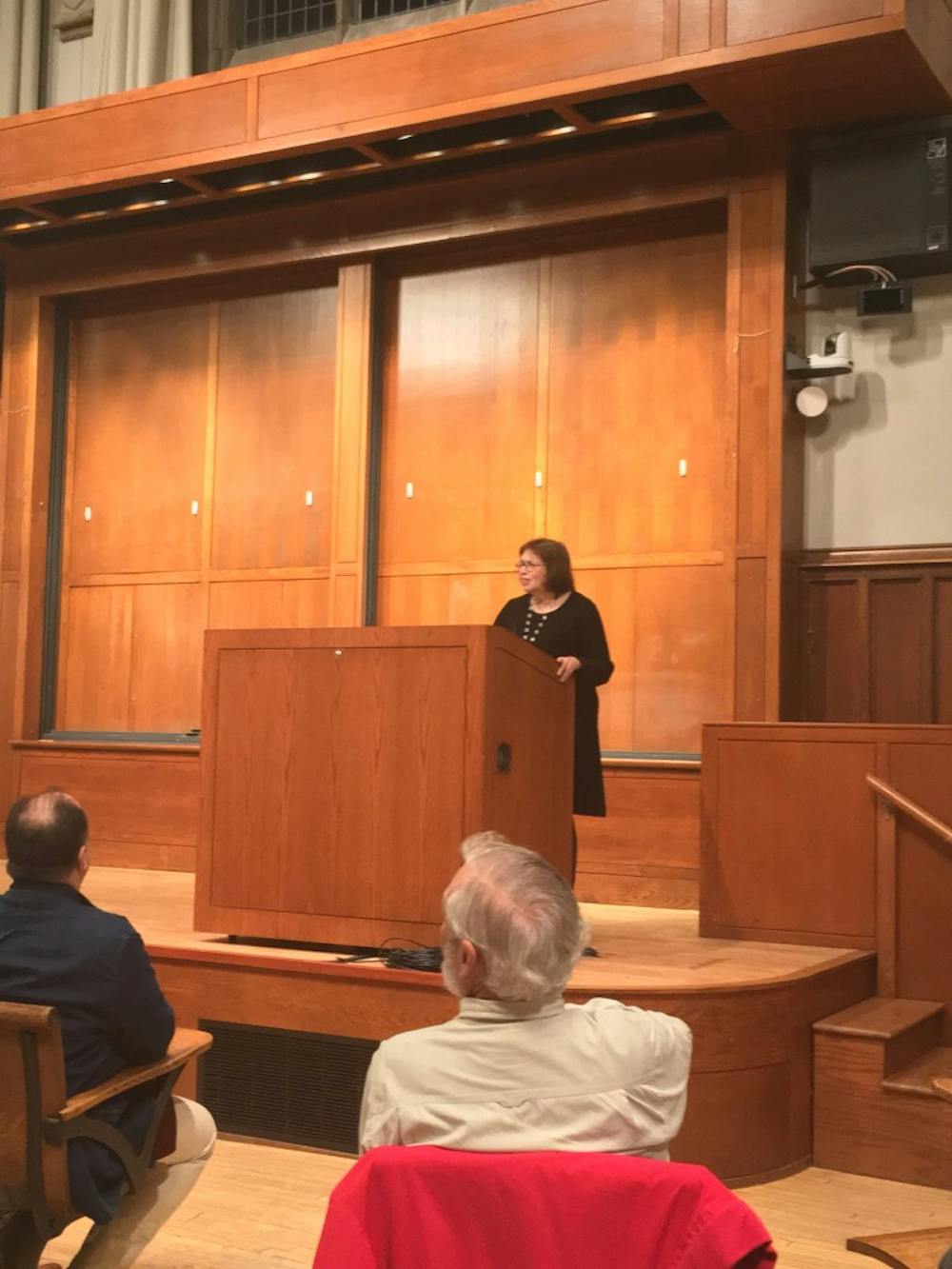Yale Law School Lecturer Linda Greenhouse discussed the cyclical nature of the judicial-legislative relationship and the transition into a more scrutinous Supreme Court in a lecture on Thursday evening.
Greenhouse focused the lecture on several federal courts’ recent decisions to invalidate three separate restrictive abortion and voting laws in Texas and North Carolina. She said that the court decisions used functioned to reveal the increasingly rigorous standards of the judiciary.
“Each decision was important, widely-recognized for their significant practical impact and political ramifications,” Greenhouse explained.
Greenhouse noted that the reason that these cases of judicial review were so important was because of the federal courts’ justifications for striking down the laws. In the past, courts exercising the power of judicial review did not attempt to ascertain the motivations of legislative bodies.
“That judicial deference to the legislatures is deeply embedded in tradition, there’s no doubt,” Greenhouse said.
With these three cases, however, each court’s reasoning said that the legislatures were acting with bad purpose to deliberately violate people’s rights. Greenhouse questioned whether this is evidence that courts are examining laws that come under judicial review more thoroughly, even going so far as to attach motivations to actions.
“What is it that provokes judges — even quite conservative judges — to abandon the traditional reluctance of their role and call it as they see it? When is such behavior justified?”
Greenhouse noted that, as the judicial-legislative relationship possesses a cyclical nature, this is not the first time courts have used legislature’s motivations as reasons for declaring laws unconstitutional.

“In these interesting cases spanning more than fifty years, we see a determination by the Supreme Court not to let themselves be fooled by legislative enactments,” Greenhouse explained. “If the impact was foreseeably the opposite of fair, the justices were willing — not all the time, by any means, but on occasions like these when the real intent showed through — to look under the legislative rug.”
Before concluding the lecture, Greenhouse noted there was a growing necessity for judges to continue to take a more active role. Greenhouse cited the most recent report card published by The Libertarian Institute for Justice’s Center for Judicial Engagement, explaining that the report observed that courts generally still defer to legislatures rather than actively engage in judicial review.
Regarding the future implications of the recent Texas and North Carolina court decisions, Greenhouse expressed her interest in observing the progressive changes in the Supreme Court and federal courts in general.
“I think it can said that we’re observing a judicial work in progress,” Greenhouse added. “States will continue to conjure ways to restrict access to abortion, Republican legislators really do want fewer votes going to their opponents, and more cases will reach the changing Supreme Court. How rapidly changing the Supreme Court will be, I don’t know any better than you do.”

The lecture, titled “Telling It Like It Is: The Evolving Dialogue Between Courts and Legislatures,” took place in McCosh Hall Room 50 at 6 p.m. on Thursday, Nov. 17. It was sponsored by the University’s Public Lecture series and the Stafford Little Lecture Series.








